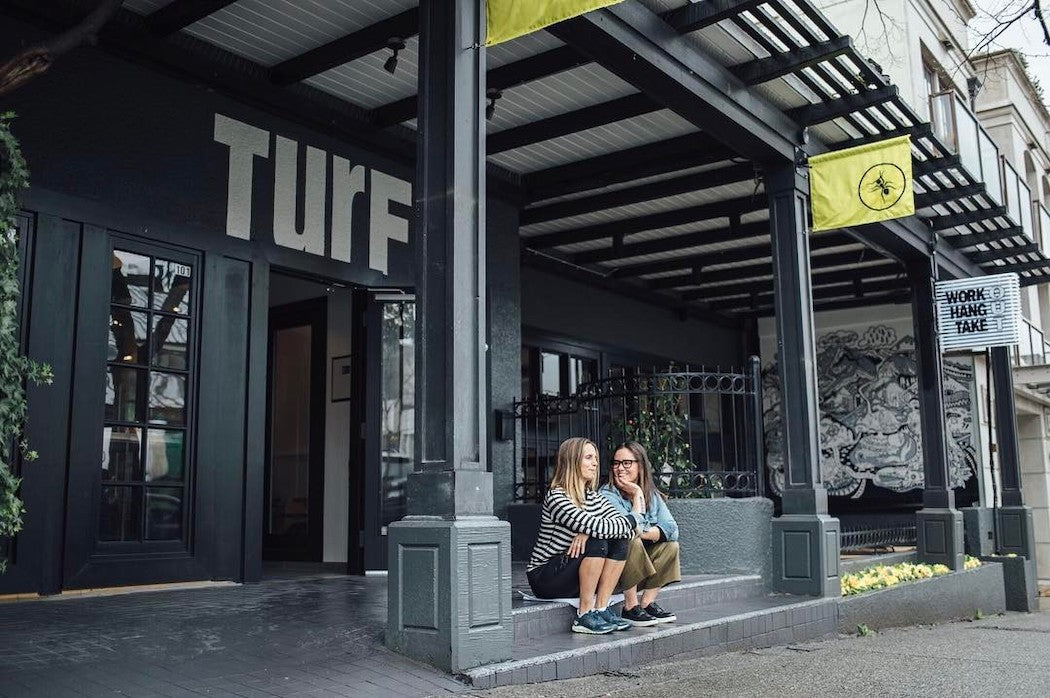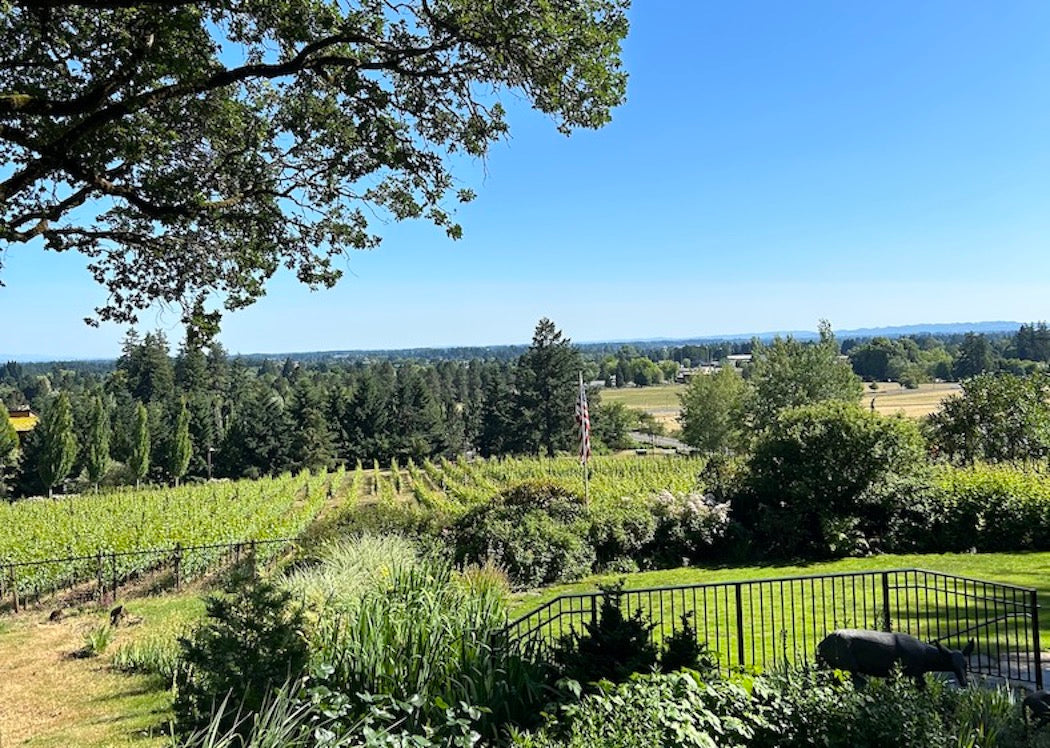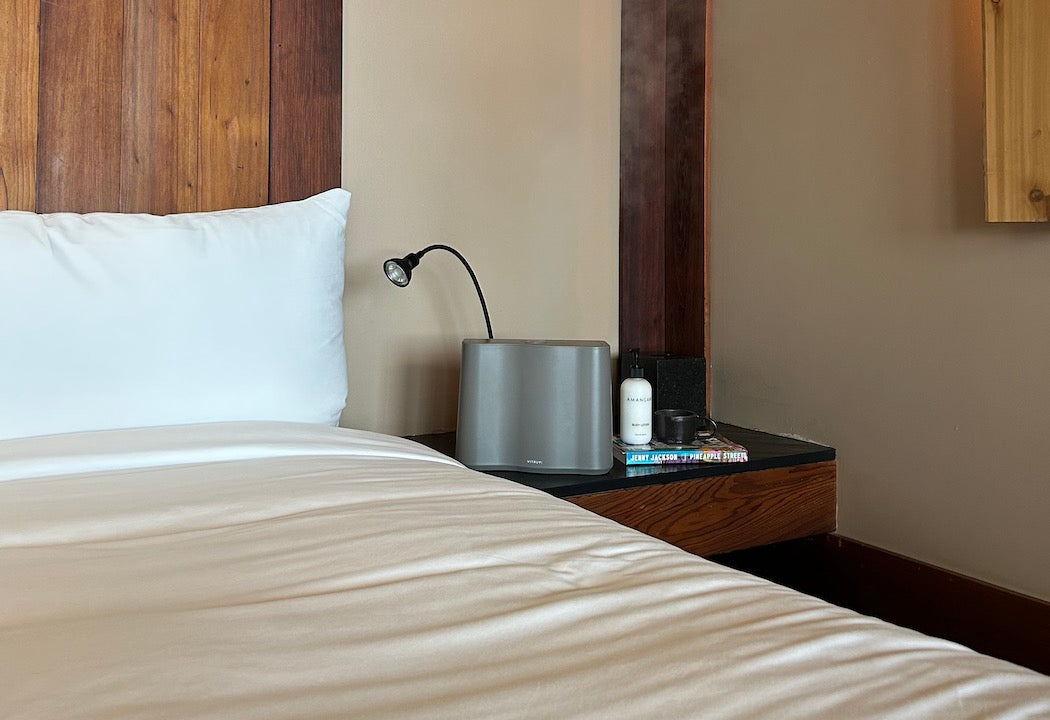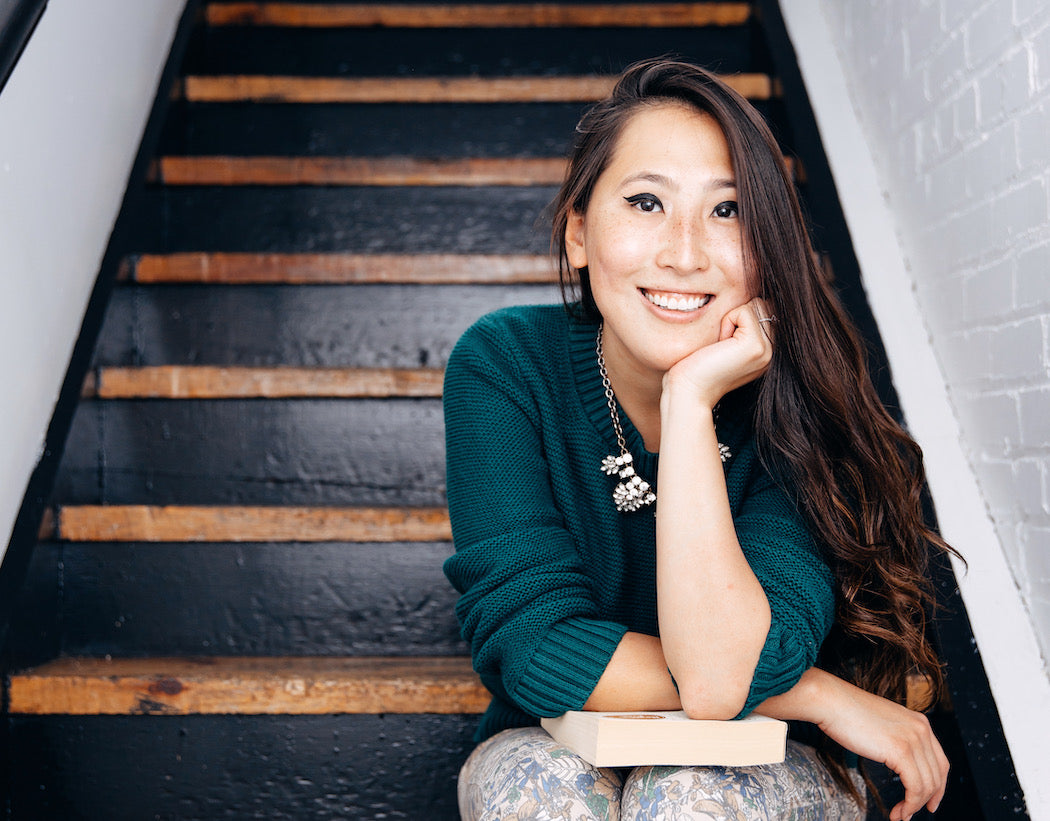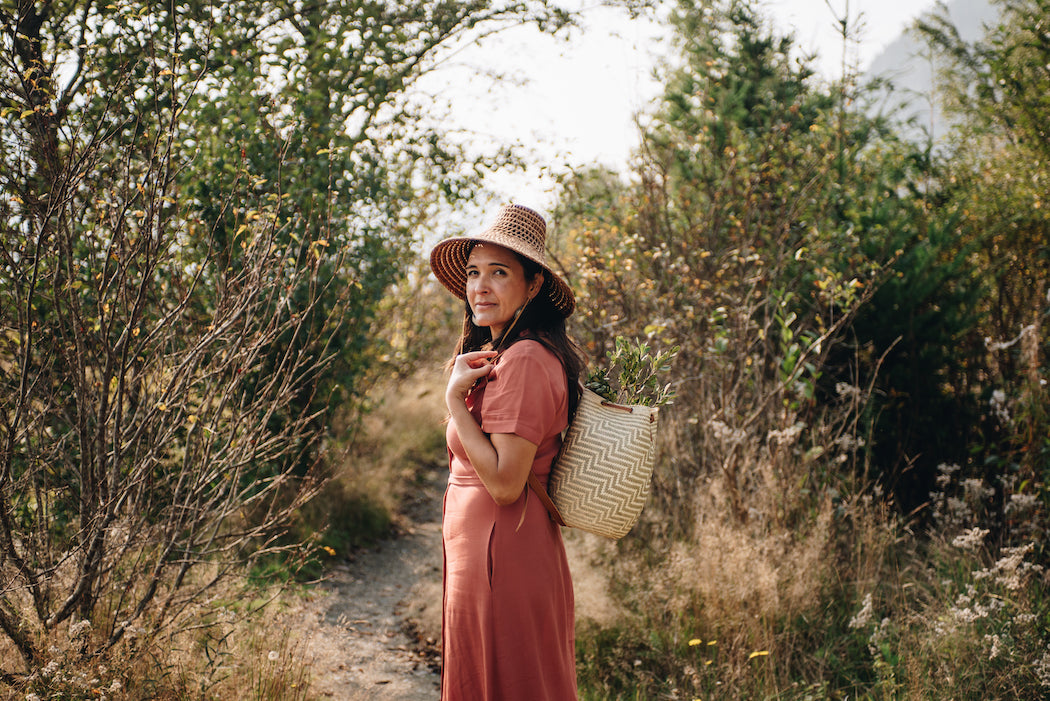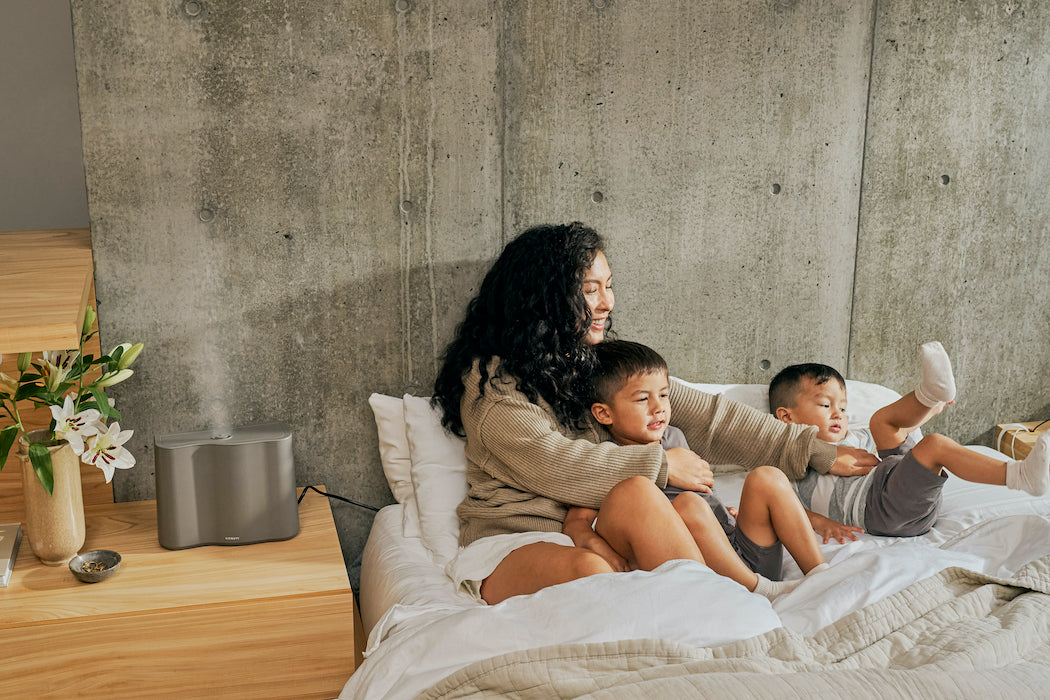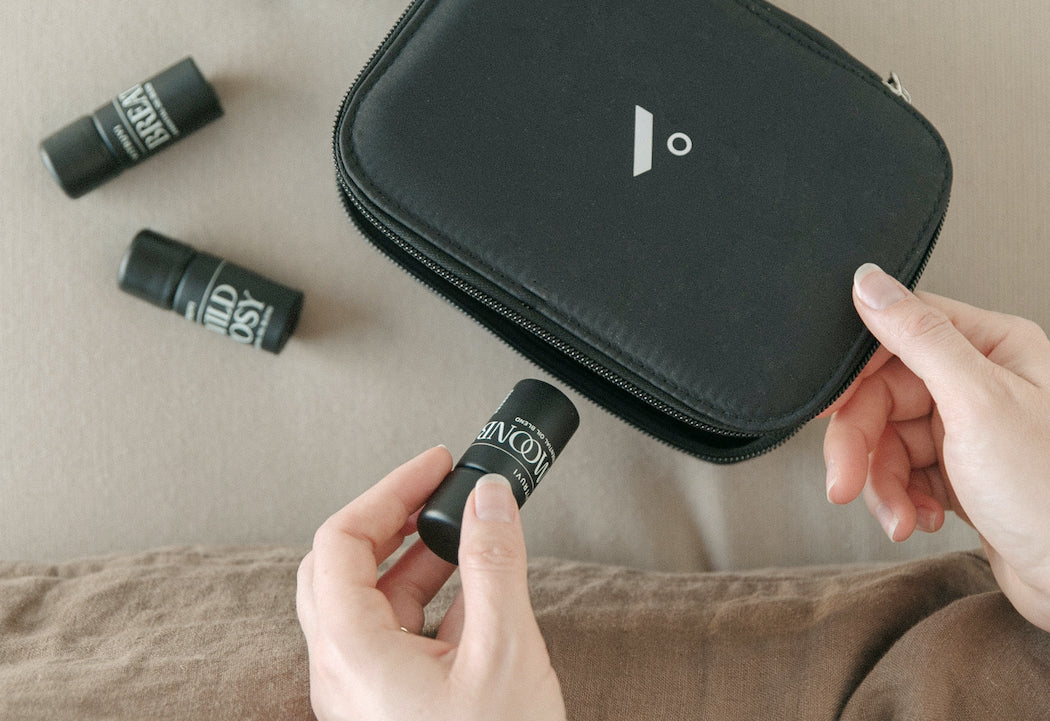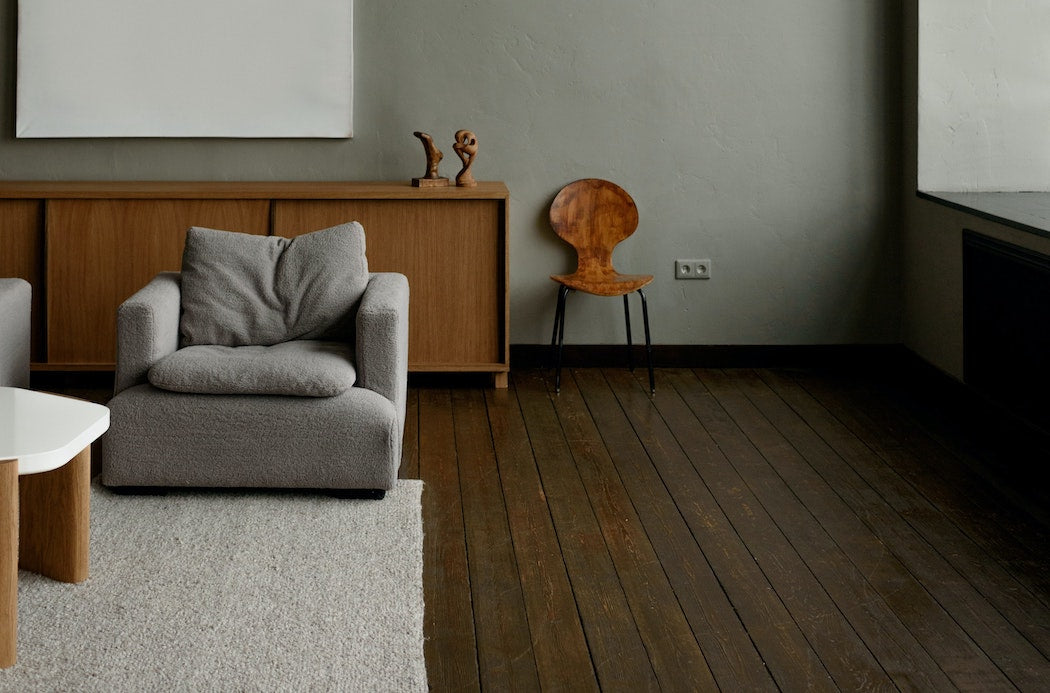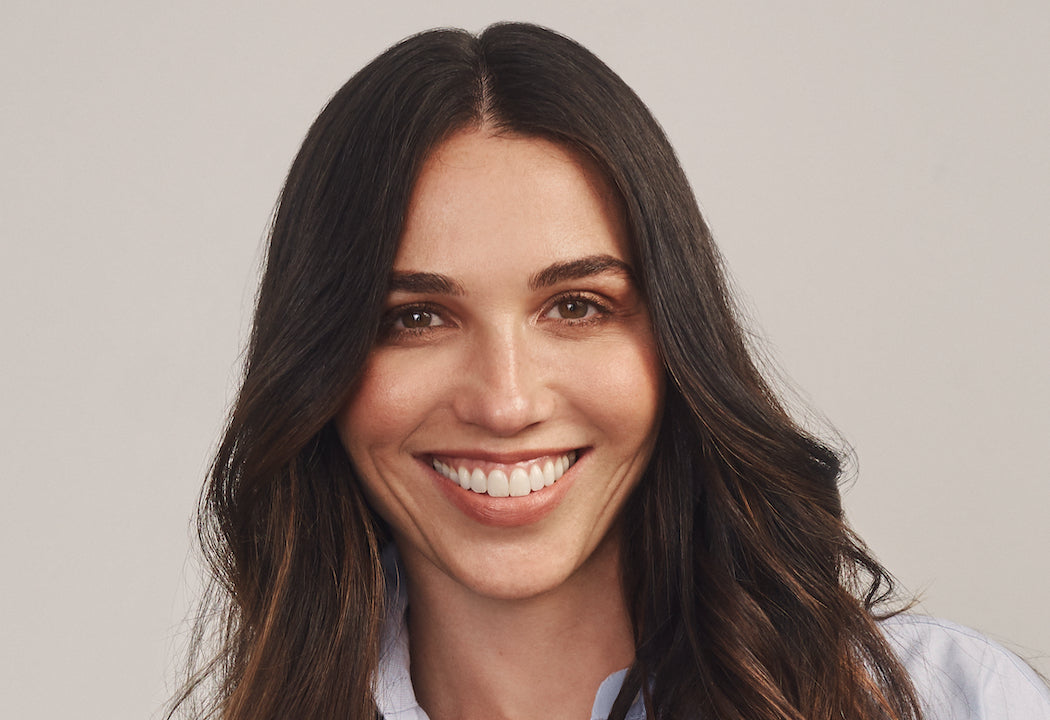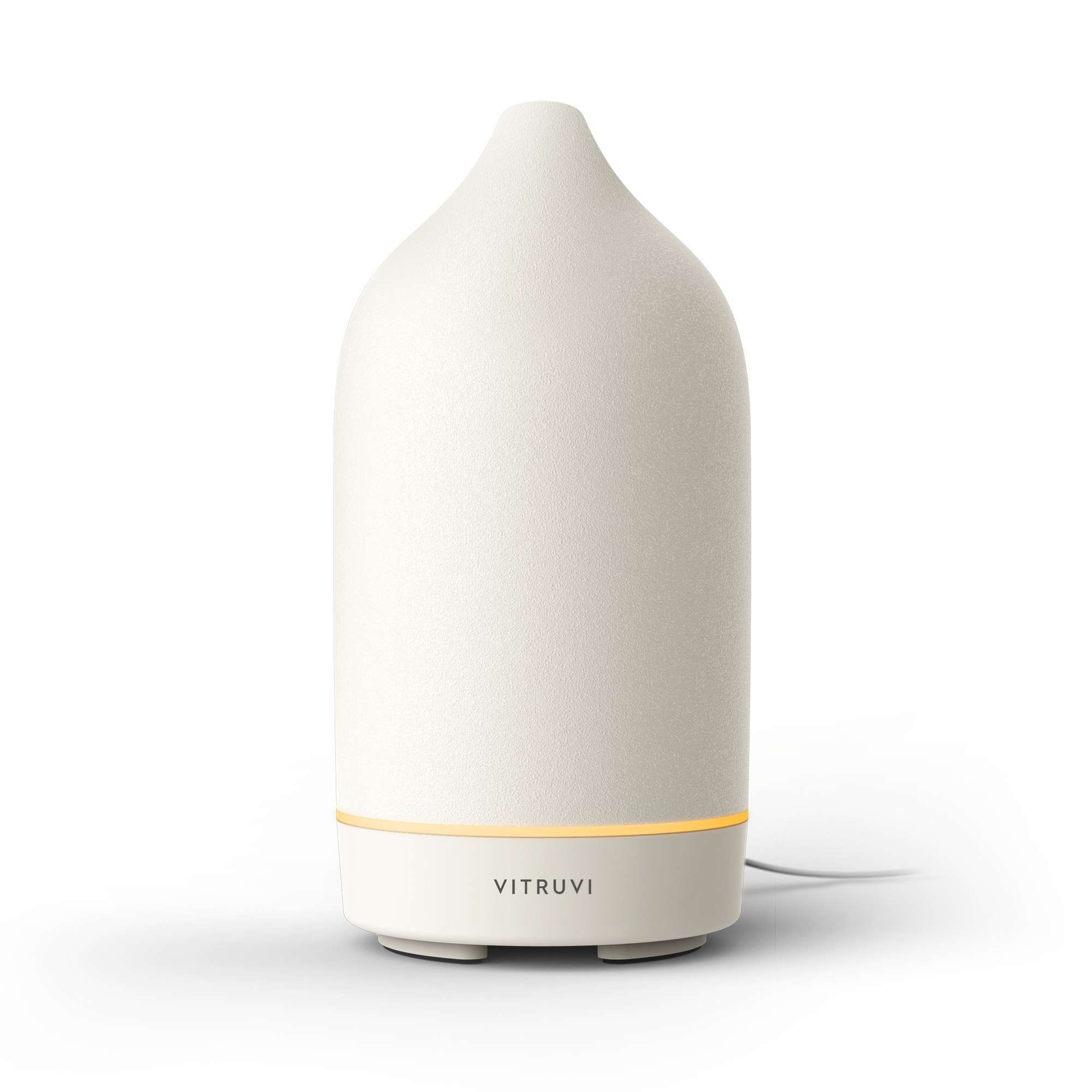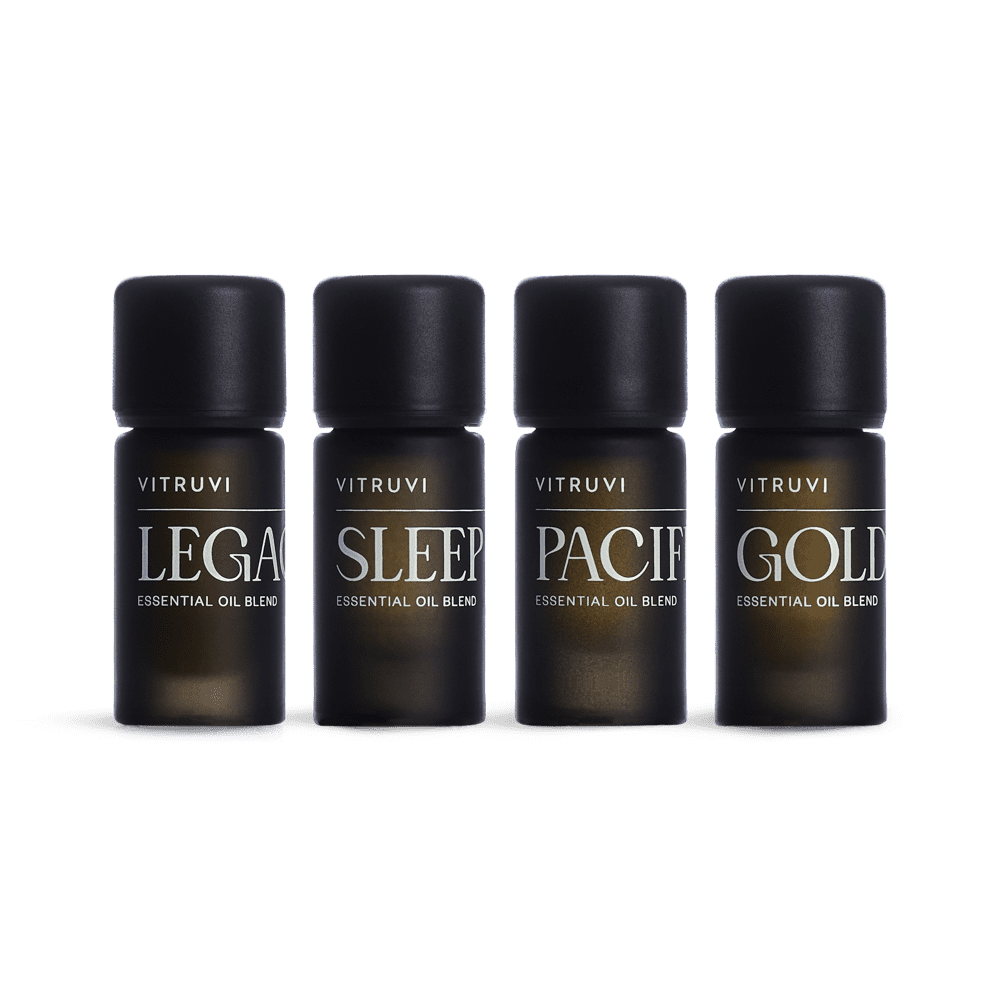Sisters Deanne Schweitzer and Delaney Schweitzer had barely been operating the second location of their fitness-studio-meets-plant-based-cafe TurF when the coronavirus pandemic forced them to close both spaces. Talk about heartbreak on top of heartbreak.
But the business partners acted quickly, pivoting TurF from an in-person workout studio, eatery, and coffee shop (located in Vancouver’s Coal Harbour and Kitsilano) to a virtual exercise provider and grocer.
Over video from their respective homes, Deanne and Delaney discuss the inspiration for TurF, how they’ve changed their business model to reflect the current consumer climate, and where the idea of community fits into it all.
Going back to the beginning, what inspired you to found TurF?
Delaney: Deanne and I had a long career with Lululemon; we spent a lot of time on the road, and we’d always have three stops. In the mornings we’d go for a coffee stop, and then we’d go for a workout, and then we would have to go to a place for a smoothie or a bowl or something—we could never find it under one roof. And after we finished our exercise and got all our plant-based food, then we would go shopping. It was kind of just how we lived our lives, but we were always frustrated with how many stops it was.
After we had both left Lululemon, we started talking about starting a business. And we have a lot of passion behind food and a plant-based menu and how to actually live a healthy life. One day we met for coffee, and then went for a workout, then we went shopping after—and all of a sudden, it just hit: what if we created a place where it was under one roof?
Our mother worked in a community centre for 30 or 40 years, so we were sort of raised in that environment. We wanted to create a place that had the three stops, and a place that ultimately was built around community. It was a place that Deanne and I would call our perfect day: so we got the best coffee, the best plant-based food, the best workout, and curated, special shopping. And we got to build community and do good things for not only our staff and our customers, but the broader community as well.
Where do you think the idea of community fits in now in particular, with what’s going on in the world?
Deanne: It feels like time is going to tell. I think we’ll be in an adjustment for the next 12 months, because people have also really learned how to operate in isolation, to some extent. Online grocery shopping and online shopping and online classes are actually going to weave their way into people’s normalcy after this. And at the same time, I think community is going to be dearly missed, and it will definitely also have a place in the new normal. So I do think TurF is going to be in a great position once we all start coming out of quarantine.
Can you talk a bit about how you’ve pivoted the business since closing the dine-in cafe and studio portion of TurF?
Deanne: Because we had TurF, I knew that the distributor still had food, but it wasn’t getting to the people. So I knew we needed to pivot quickly and figure out a way that we could sell cauliflower and sweet potatoes and bananas and avocados in that form, and do curbside pickup and delivery. So between the group of us on calls every night about how we were going to do this, I feel we got it up and running really fast. That was how we pivoted in food really quickly, which was really exciting. When we started it was not perfect, and along the way I feel like we’ve turned it into something pretty unique and very TurF. And then the online classes just felt like a no-brainer. It started off with some of the teachers still wanting to teach, and how can we get them in front of people? We knew people were craving to go to their favourite instructors, so we started with the most popular ones.
Delaney: The ones that helped build TurF; they’re part of the foundation that really brings TurF alive. When everything started happening, like Deanne said, we were on calls every night for a long time. There were people doing online classes, but they were doing Instagram or they were doing YouTube videos, or they were just taping them and putting them on their website. So what we saw was a real opportunity to sign up for a class [through the Mindbody app and stream it live through Zoom]. They took off right away.
There is something about Zoom and being able to sign in—you’re with everyone else. The very first class that we did with Kate [Alvarado], who does Yoga Sculpt, 130 people showed up. And you could feel it; I was on my little computer in my little room, and I could feel the 130 people. And the power is in that. It’s not just about this workout because I’ve got to move my body, it’s still about community. We didn’t just want to dump a class on the website so people could do it by themselves, because that doesn’t really support the community and what we’re feeling right now in isolation.
Is the boutique portion of TurF open for online orders as well?
Deanne: Yes. Our general manager was able to hone in and get some new skills, and our website looks really good right now. And we had the inventory, because we had enough for two TurFs. So we had double. It’s been fun to see what was possible in online sales, and that’s something that we get to take forward into the next frontier.
Delaney: We have such a strong team. What Deanne and I talked about was: how do we actually keep enough business going that we actually lay off the least amount of people? So our goal was to try to keep as many people as possible; I know we both lost a lot of sleep in that. We didn’t care about ourselves, but we were certainly thinking about that team. So part of the urgency to pivot was: yeah, we wanted to provide for the community because we saw the opportunity, but we also wanted to take care of our staff and keep them employed.
So the sooner that we could ground ourselves into [the mindset]: “Okay, this is the new world. We can be stressed about it or sad or emotional about it, or we can get into action.” And between my sister and I, we’re super good at getting into action. So we just cleared it and moved forward, and got to the possibility of there being an opening. A door closed for sure, but another door’s opening—how do we actually open it wider? We’ve learned so much, and I think that there’s so much in the new model that we’ve created that will lead us into the future.
Speaking of your team: what does it mean to you to be a good leader right now, when you’re not face-to-face with your staff?
Delaney: We talk a lot about: how do we keep our staff connected? How do we make sure that when this all passes, we look back and we were the leaders that we wanted to be? And that’s taking care of the community, taking care of our staff, and we do that through taking care of ourselves. It hasn’t been easy. I think about the business stress, or the lease stress, or the money stress—and I think we just need to get out of that and just get back to being people leaders. It makes the decisions a lot easier. And I think there’s still lots of questions and uncertainty in the business, but I‘m not going to let that affect the relationships and the leadership that we can give our team right now.
This interview has been edited and condensed.

